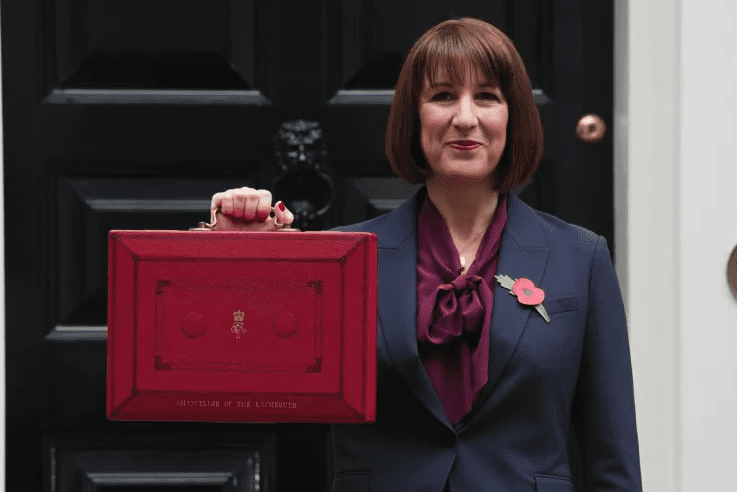
Connor MacDonald
Head of Economics and Social Policy (2022-2023)
The Conservatives look set to have their worst result in London since its current boroughs were created in 1964, and it is now the first time the Conservatives have only controlled one council in central London. What had once been a major urban area relatively immune to complete Labour dominance looks set to join Manchester, Birmingham, Liverpool and Newcastle in having little, or no, Conservative representation.
Some bright spots for the Government include picking up seats in Enfield, and taking control of Harrow council, but overall the result is grim. And it should pose some searching questions about how the Tories reclaim the economic narrative.
It may be true to say that London is trending away from the Conservatives, and so these results are not too existential in the short-term. But there is a pressing longer-term reality: the Government has claimed that cities, and agglomeration benefits, are key to economic growth and prosperity. Indeed, London and cities like Manchester and Birmingham are the country’s major economic engines. London in particular represents exactly the kind of open capitalism – the Global Britain – to which the government aspires. The fact that they cannot win in these engines is a problem not just for the Government, but for the country too.
The economic malaise in London is undeniable. A graduate earning over £27,295, is facing a marginal tax rate of 42.25%. By comparison, in the United States’ most Democratic big city, San Francisco, with an average salary of £42,796, a millennial will pay an effective tax rate of nearly 25%.
Add on top of that London’s childcare costs of an average of £321.75 per week for a nursery, and the fact that the average rental home costs nearly 40% of the median income in London, and you have the conditions to rapidly make London fundamentally un-liveable for exactly the kind of upwardly mobile, striving young and middle-income people that should be able to find a future in the big city.
The fact is there was a cost-of-living crisis in London before the current cost-of-living crisis hit, and their relative economic disenfranchisement has been made known in these election results. One aspect of the ‘Levelling Up’ agenda that needs to be finessed is that it can often sound as if things are rosy in the cities. Adjusted for housing costs, London is only slightly ahead of the UK average household income.
The challenge for the Conservatives is that, while they may be able to afford losing these voters in the electoral cycle, forgetting the cities would hobble the growth agenda necessary to recover from COVID-19 and address head-on the cost-of-living crisis.
Because cities are central to global competitiveness in the 21st century and are central to the Levelling Up agenda in London and outside it, it is vital that places like London and Manchester are able to retain and attract talent. But they will not be able to do that if taxes are higher than in competitor cities and costs are pushed up by regulation and planning constraints.
The challenge for the Conservatives is that this will mean trying to enact policy for the cities without much political representation in them. The solution is designing policies that speak to upwardly mobile voters in cities, even as they address wider concerns.
The Government should recognise that it needs to address the cost of childcare, both by deregulating supply and reforming the complicated subsidy system that in theory is generous but in practice fails to deliver help effectively.
They should fully embrace planning reforms in cities to build more and faster and more beautiful. People want to live in cities. They should have the opportunity to. Policy Exchange has long advocated for more and better housing, and this result underlines this pressing priority.
The Liveable London Unit will explore these problems in more detail, from housing, to transport to economic uncompetitiveness, and I look forward to working with them. Because British economic policy does not succeed if Britain’s cities do not succeed.
The Government should have a plan for lowering taxes, and, more importantly, letting economically empowered areas like London and Manchester make more of their own taxation decisions. This may worry the Government, as the immediate short-term result might appear to be more Labour Mayors, but this may not be the case. In the US, Republican Governors of Democratic states are currently some of the most popular political figures in the country, and San Francisco is starting to generate a new breed of pro-growth Democrats. Faced with actual power to tax and spend, Labour Mayors will have less reason to go cap-in-hand to Government and will have to think harder about exactly they can generate growth in their areas. They can compete with the Conservatives on growth, rather than begging from central government.
And most importantly, the Government should make it clear where power lies on crime and policing. Mayors, like Sadiq Khan, should be held responsible for the conduct of police in their city, and weaker police forces like the Met should be properly accountable. The current patchwork blurs accountability and ultimately lets bad police governance in cities off the hook.
This pro-growth mindset at first glance appears to chime badly with the Conservative party’s current voter base. After all, Labour won all household income brackets below £100,000 if you exclude retirees in the 2019 election. However, to get workers, and to build a more durable coalition, a pro-growth strategy for cities is necessary.
This has been seen in elections recently in Canada and Germany. In Canada, the controversial Premier of Ontario, Doug Ford, looks set to win on a platform of building and development in Toronto, backed by a suburban and rural coalition. Pierre Poilievre, the front-runner for the Conservative federal leadership, has dominated the narrative over the last few weeks by attacking Trudeau mercilessly on housing prices in big cities. According to the latest poll, the Conservatives are leading the Liberals by 24 percentage points amongst those 18-29. In Germany, the pro-growth, pro-market FDP captured the largest share of first-time voters in the 2021 elections.
The Prime Minister has long been known as a great capitalism optimist. It’s that optimism that propelled him to Downing Street, and which drives our great cities. London must retain its competitive edge and by doing so the Conservatives can not only raise productivity and growth but recapture its place in Britain’s capital. On both fronts, there is no time to waste.


